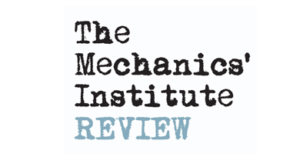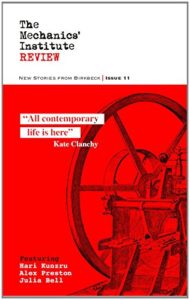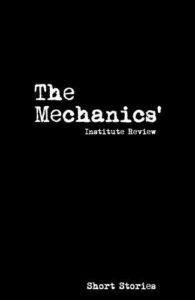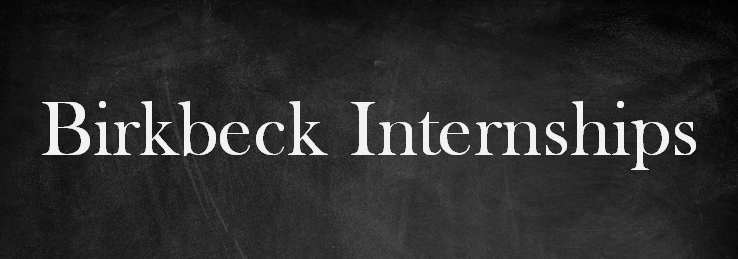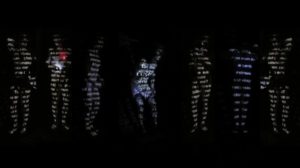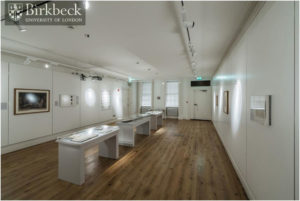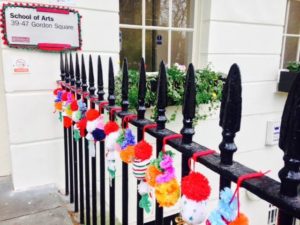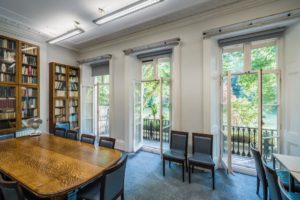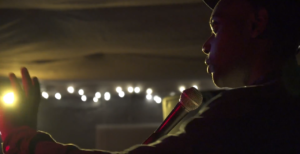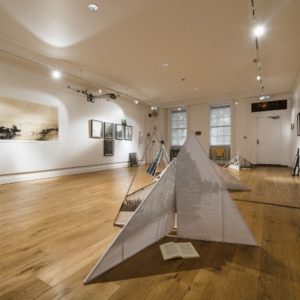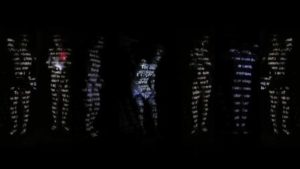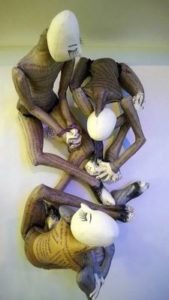Aren Roukema
Science Fiction is simply one of the most productive and stimulating areas available for research and discussion — encountering and discussing SF texts provides opportunity for thinking (and worrying!) about the future, for struggling with ecological, social and philosophical issues of the present — in addition, of course, to new technologies and scientific advancements — and even for enjoying the continued presence of the monsters, utopian visions, and other imaginaries that have always drawn us to the fantastic.
*READING GROUP* We are convening for our next session on 9 April for a screening of 'O-Bi, O-Ba: The End of Civilisation'. The film will be shown in the Birkbeck Cinema (43 Gordon Sq) at 6pm, and then we will move to Room 106 for discussion until 8.30pm. Pub etc. after! pic.twitter.com/ABORqWH6dH
— LSFRC (@LSFRC_) March 28, 2018
Birkbeck has a number of faculty members who are leading SF researchers (Roger Luckhurst, Caroline Edwards) and even authors (Mark Blacklock) and has thus attracted a number of students over the years who are specifically interested in SF, whether via the MA module or as PGRs supervised by the above. As researchers whose projects are centrally concerned with SF, Rhodri Davies and I felt that setting up a Research Community with reading group could benefit both ourselves and the Birkbeck Eng and Hums community. We started slowly but have built up our average attendance at reading groups to the point where we can expect 15-20 people per session, either from the community or from universities in London and surrounding areas. We were later joined as organisers by Francis Gene-Rowe of Royal Holloway (in 2015) and Katie Stone (in 2018), who started this past year at Birkbeck.

We also hold an annual conference and host evening lectures, in tandem with Birkbeck’s Centre for Contemporary Literature. The last evening lecture we held (in February) was with SF author and critic Brian Stableford. Thus far we’ve held three of these lectures, in which we try to bring in a well-known SF author either for a lecture or a panel discussion.
Our last annual conference, Organic Systems: Bodies, Cultures, Environments dealt with ecocriticism in SF. Our next conference will be held on 14–15 September, and will feature keynotes from Roger Luckhurst (Birkbeck) and Helen de Cruz (Oxford Brookes), and a round table with SF authors Jeff Noon, Justina Robson and Fiona Moore (Royal Holloway).
Our session on Borges yesterday just so happened to take place on the same day as "The Aleph" protagonist's annual visitation in memory of Beatriz Viterbo. Today, however, is still more significant: it's the last day to send in proposals for our "Sublime Cognition" conference! pic.twitter.com/NuGCl9otAc
— LSFRC (@LSFRC_) May 1, 2018
I’ve had many positive reading group experiences. One highlight, though, was reading Frank Herbert’s Dune in tandem with a documentary about a film adaptation by Alejandro Jodorowsky that was never made, yet went on to influence a number of now high profile SF film directors, screenwriters and illustrators. A high profile example is Star Wars, made shortly after Jodorowsky’s seven hour film project was shopped to (but not bought by) Hollywood studios. As a number of critics/conspiracy theorists have observed, Star Wars has some inventions and scenarios that seem suspiciously similar to Jodorowsky’s storyboards. The surprise for me in all this was that I enjoyed the concept of Jodorowsky’s film—the imagining of its never-fulfilled conception—more than I’ve enjoyed completed films like Star Wars; indeed, more than I enjoyed Dune itself!

It is part of LSFRC’s wider mandate to create a space for established academic researchers, students, and non-academic members of the community to discuss science fiction. Interested PGR students can contact
Aren Roukema: arouke01@mail.bbk.ac.uk;
Katie Stone: kstone03@mail.bbk.ac.uk;
Rhodri Davies: mrrhodridavies@hotmail.com
Follow @LSFRC_ on Twitter
Join the London Science Fiction Research Community on Facebook



